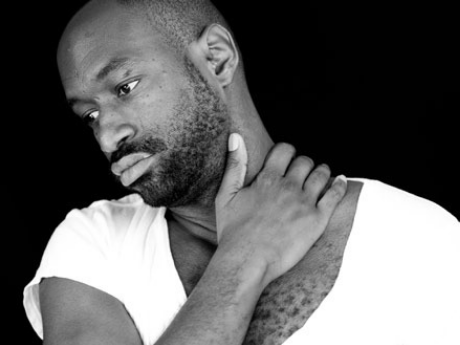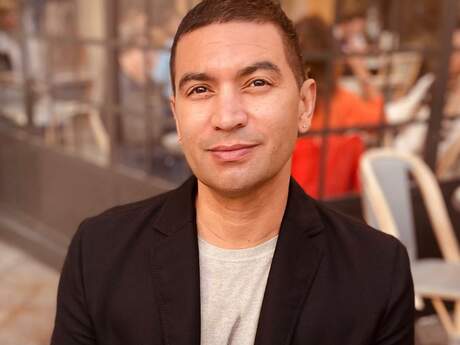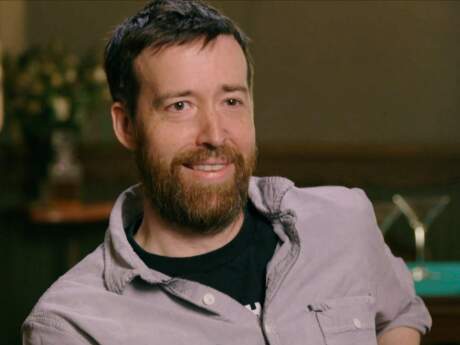Blue Light Lounge Sutra for the Performance Poets at Harold Park Hotel by Yusef Komunyakaa Meaning
Q & A American Poetry: Dante Micheaux

1. There is something to be said for coming of age in a place. Though a poet, one hopes, continues to incorporate his/her experiences into composition as they come, I have found it useful to define American poets as those who have come of age within the borders of the United States. An argument can be made, however, to include those poets who have come of age in the New World (North America, South America and the Caribbean) as American—if said poets wish to claim that identity. "…we are," David St. John writes, "as American poets, culturally alert to complexity and verbal nuance, determinedly polyvocal, and stylistically independent, even arrogant." It is important to see ourselves within the tapestry of the English language. I live outside the United States but see myself as distinctly American. Certainly, influence mitigates my American-ness but, ultimately, it comes down to how that influence is articulated. Before Walt Whitman, there were American poets who wrote English poetry. After the publication of Leaves of Grass in 1855, that trend changed forever. We had American prose writers but it took Whitman, who risked it all, to give the New World its first poet in English. What most makes me an American poet is the candor and open marriage to the poetic line that I have inherited from Whitman.
1.1 Taking this position means that when considering American poetry, the contributions of poets like Charles Simic and Paul Muldoon are excluded but it allows me to reclaim a poet like Thomas Stearns Eliot—whose Nobel Prize went to the United Kingdom. And there are, of course, exceptions to the rule, the most notable of which is Jorie Graham, a poet who came of age in Western Europe but whose work is undeniably American, utilizing the Whitman inheritance in breathtaking and innovative displays of poetry.
2. American poetry is fresh, it breathes deep, sustaining breaths. This may seem an intangible literary quality but in my reading of poetries from other traditions or in other languages the same motivation is rarely there. When I do discover that quality in another poetry, the evidence of American influence is markedly present. This is particularly true of British poetry, which has relied on American poetry to relieve itself of the burden of its grand tradition since the 1860s. I do not mean to imply that other poetries lack inventiveness or energy but the catalyst is usually cerebral and not somatic as it is in American poetry.
3. No matter where I go, I find America. Our unfortunate imperialist history and present global domination affords me the opportunity to travel and find a sense of my cultural rhythm in a way that would not be possible for, say, a Kyrgystani poet traveling in the United States.
3.1 Being able to express my homosexuality through poetry constantly reminds me that I am American. The history of the Homosexual Tradition is strong and vibrant in America— beginning with Whitman and including Owen Dodson, Allen Ginsberg, Marilyn Hacker, Melvin Dixon, Mark Doty, Essex Hemphill, Carl Phillips and Reginald Shepherd. Time and tolerance have meant that fear is not a factor when composing poems that involve the innate way in which I love. The same cannot be said, for example, of a Ugandan poet of my, or previous, generation.
4. If American poetry has any formal distinction, it is in rhythm, which is always forward moving even when it repeats itself—as in these lines from Yusef Komunyakaa's poem, "Blue Light Lounge Sutra for the Performance Poets at Harold Park Hotel":
the need gotta be
so deep words can't
answer simple questions
…
the need gotta be
so deep you can't
just wiggle your hips
& rise up out of it
5. Since World War I, popular culture has been a significant trope of American poetry and there are some poets who depend too much on its connotations for the framework of their poems. Popular culture is, however, America's greatest export and acts as an ambassador, though a sometimes-problematic one.
6. When I think of my own tradition, I think of both American poets and non-American poets, and several writers of fiction. For me, the tradition comes from the poets with whom my poems are in dialog. Whitman; Cavafy; Lorca; Borges; Baldwin; Bonnefoy; Márquez; Walcott; Morrison; Delany; Hacker; Komunyakaa; Graham; Hemphill—from these I have learned the most. Carl Phillips is my personal master. Jay Wright is, however, the best the United States has to offer when it comes to living poets. And if there is a poet better than Édouard Glissant, I don't want to read him/her for fear I might spontaneously combust.
7. The greatest mistake poets make, if we are interested in the survival of poetry, is envisioning ourselves as "writers". The next century will see the obliteration (or "redefinition") of poetry. Often what we as readers find beautiful in novels/short stories, plays and essays is described as poetic. I would agree with that description. Unfortunately, poetry has taken on aspects of those other genres that weaken it—prosaic tedium and performance as a substitute for drama. As the limits of genre disappear and technology advances, we will see the production of amorphous literature. In fact, we are being trained to recognize and appreciate these kinds of texts even at present. This is a valid and, perhaps, logical evolution for the written word. I am optimistic, however, that a few poets will hold on to a sort of retrograde aesthetics, so that the old tools do not rust or are forgotten.
More Q & A: American Poetry


Source: https://poetrysociety.org/features/q-a-american-poetry-1/dante-micheaux-1
0 Response to "Blue Light Lounge Sutra for the Performance Poets at Harold Park Hotel by Yusef Komunyakaa Meaning"
Publicar un comentario